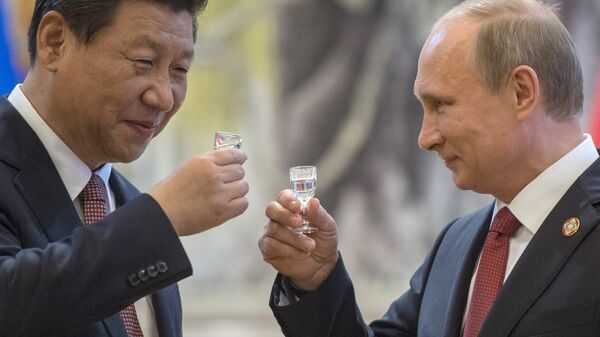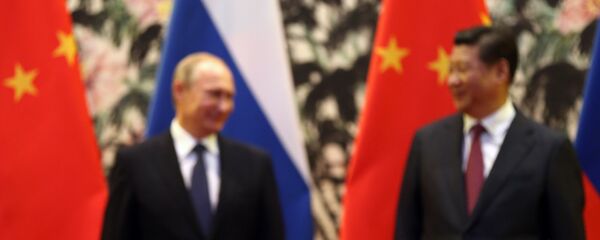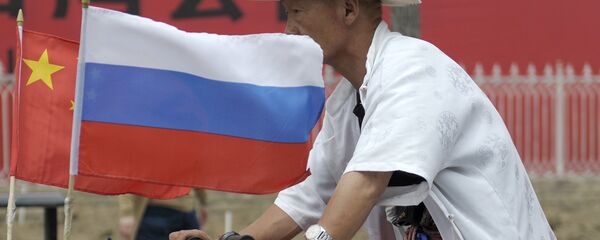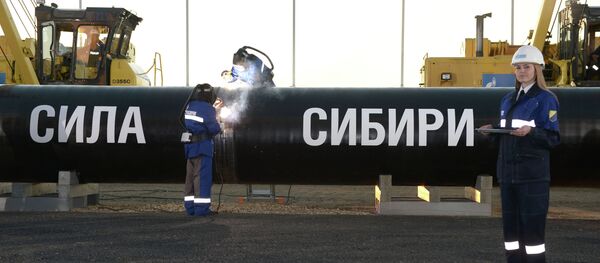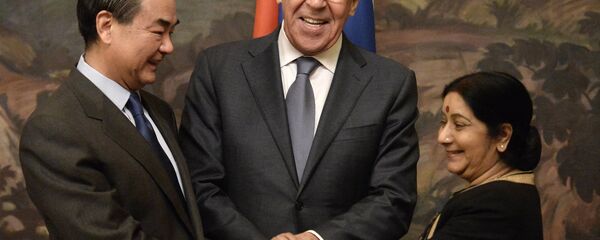Russian President Vladimir Putin will have an informal meeting with his Chinese counterpart on Monday evening, Kremlin spokesman Dmitry Peskov said.
"This evening, as a part of Chinese President Xi Jinping's official visit, President Putin and Xi Jinping will informally dine together in the Kremlin," Peskov told journalists.
The spokesman added that the Xi's "full-fledged official visit" would start on Tuesday and would include bilateral talks and the signing of documents.
New Format
"The format of bilateral meetings has changed. While previously Sino-Russian talks were of a landmark nature, including sometimes dozens and hundreds of issues on the agenda, now they are not that large-scale, but oriented towards resolving certain problems. This means that Moscow and Beijing have managed to develop mutual trust," Maslov told RT.
According to Evsey Vasilyev from the Russian State University for the Humanities, the frequency of high-level talks between Russia and China reflects the positive dynamics in developing bilateral ties.
According to Maslov, these dynamics prompt Moscow and China to intensify bilateral contacts. Chinese companies are interested in investing in Russia while the Russian economy needs Chinese capitals and advantageous deals.
Diversification of Trade
According to Maslov, currently Russia and China are moving to a more sophisticated form of cooperation through "diversification."
"This shift is expected to be on the agenda of the Moscow talks. Issues that were previously discussed by ministers will now be discussed by the national leaders," Maslov suggested.
Another promising field for Sino-Russian cooperation is the joint effort to implement the Beijing-led One Belt One Road infrastructure megaproject.
"This will inspire foreign investment flow to Russia. New hi-tech infrastructure facilities will be built in Russia and the other members of the EEU," Maslov said.
At the same time, he stressed that formally speaking, Russia is not a party to the New Silk Road initiative and Moscow wants to cooperate under framework of the EEU.
Energy Cooperation
"China needs those projects too. They are important for developing China’s industrial sector and strengthening national energy security," he said.
In particular, the date has already been set for Russia’s provision natural gas to China via the Power of Siberia pipeline.
"Since global crude prices have stabilized and gas prices are bound to oil, Russia and China could begin discussing the price and then launch the pipeline," Maslov said.
However, according to the expert, the future of energy cooperation between Moscow and Beijing may be affected by the changes in China’s domestic market.
"The situation in the Chinese market has changed. China is decreasing its consumption of energy resources and making its industries less dependent on energy. In this context, Russia and China need to diversify cooperation," Maslov said.
Multipolar Vision
"Moscow and Beijing want to carry out a coordinated policy on many global problems, including within the G20 framework," Vasilyev said.
According to him, these efforts come from the Sino-Russian strategic partnership as well as from their common vision of transitioning to a multipolar world order.
Maslov suggested that among the international issues on the agenda will be the crisis in Syria, the situation in the Middle East and the North Korean nuclear program. Russia and China have similar views on these problems. In Syria, China supports Russia and the legitimate Syrian government led by Bashar Assad. As for North Korea, both Moscow and Beijing insist that the problem can be resolved only diplomatically.
Moreover, Putin and Xi are likely to discuss cybersecurity, the fight against terrorism and global economic problems.
